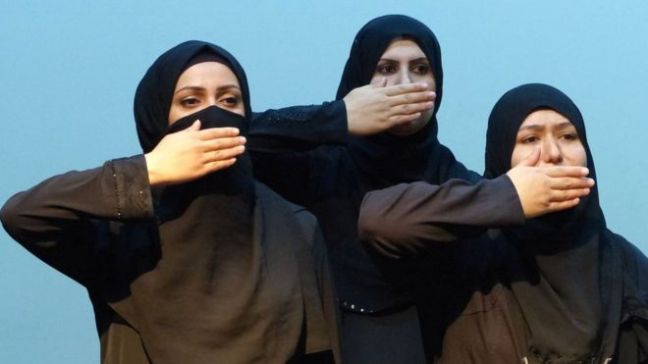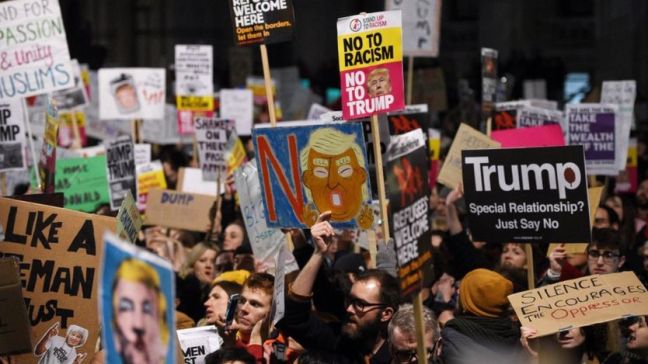I am currently taking part in a program at the Roundhouse for 16-25 year olds, called ‘Making Political Theatre’. One of the ideas that came up in a workshop was this: do we have the right to tell anybody else’s story except our own? The women who ‘authored’ (hard ‘t’) ‘Queens of Syria’ combated this issues by folding their narratives into the framework of Euripides’ text. By sharing their stories collectively, they also share the agency and the piece becomes communal.
The role of theatre in the community is perhaps best exemplified by the Good Chance Theatre project, a pop-up performance space set up by two British playwrights in the Calais Jungle. Joe Murphy and Joe Robertson visited the camp initially to gage how best to help the situations of those living in the camp, half-heartedly wearing their dramatists’ hats. They decided against making a play from their contact with the refugees and were drawn instead to resolving the lack of shared public space within the camp. There was no town hall where people could meet, no space for channeling individual experience towards a collective end. ‘The Joes’ returned to the UK to seek advise from figures like Vicky Featherstone, Artistic Director of the Royal Court. Featherstone recognized the vision of a theatre as a place of sharing stories, hearing voices, physically coming together and humanizing. While the Royal Court proceeded with a curated season of plays dealing with themes of refugee and escape, the Joes went back to Calais with a large white tent, a hat full of money and a group of volunteers.
The premise of the Good Chance theatre is simple. The space belonged to the people of the camp, not to the instigators of the project. The tent provided shelter and a platform in which individuals could gain confidence through performance and find expression. Hope was encouraged and every Saturday saw a ‘Hope Show’, a variety production featuring some rehearsed and some spontaneous pieces. The effect of the project is harder to summarize. People moved their houses to be close to the theatre. They assumed roles of responsibility connected to the well fare and up-keep of the tent, embracing the theatre as a part of their identity. The Joes found that the word ‘refugee’ was no longer appropriate outside the refugee/migrant binary commonly accepted in the UK. Those connected with the theatre became ‘Friends’; as for the women of ‘Queens of Syria’, the term ‘refugee’ was personal and problematic. These were displaced people, with stories of hope to share in addition to those of suffering.
The Good Chance theatre was deconstructed with the camp in 2016, and along with it, the common ground it had given to those who became involved in its shows, courses and activities. Featherstone wrote of the lack of space in British theatre for individual stories that do not make it through the media’s lens. What is the next stage, once the big white tent is gone?





